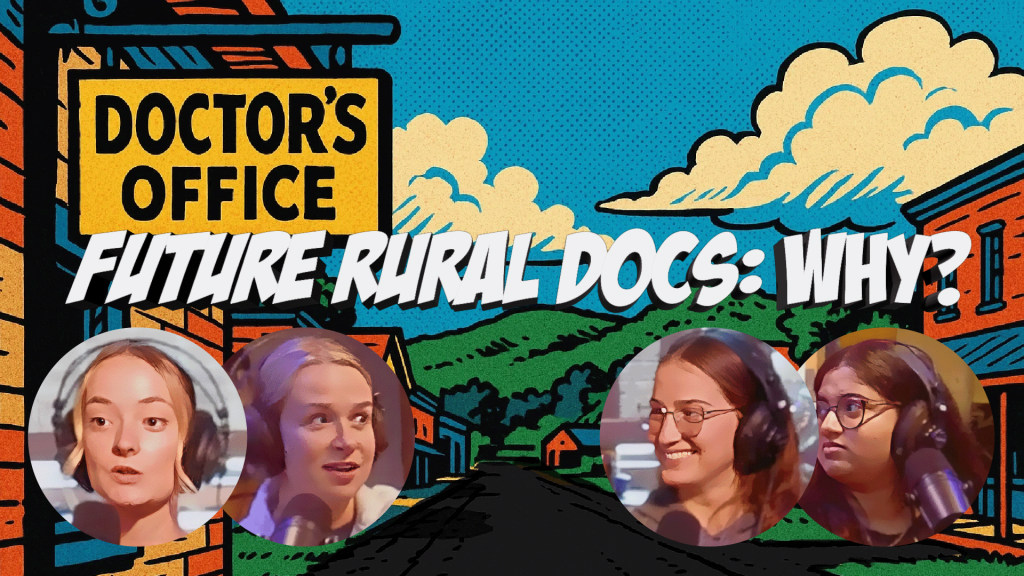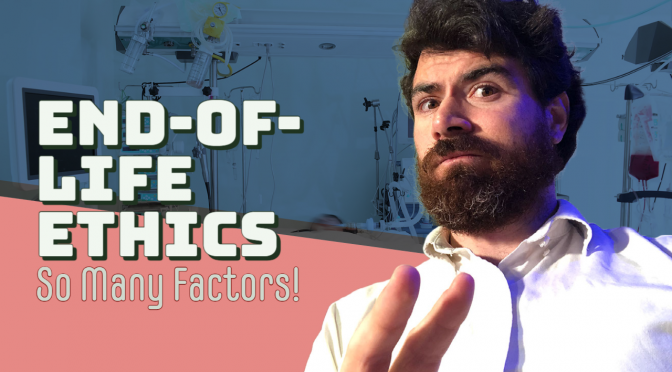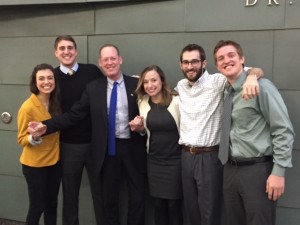Podcast: Play in new window | Download (Duration: 52:42 — 72.4MB)
Subscribe: Spotify | RSS | More
The Truths and Solutions for Small-Town Healthcare.
We’re talking about rural medicine, where the needs are huge, the systems are broken, and sometimes, you just have to trust the process. Did you know that rural Americans have only 13.1 docs per 10,000 people compared to 31.2 in urban areas? Yeah, the need is real. But why are these students signing up for the challenge? And what the heck does a $50 billion Senate program have to say about processed cheese slices?
M2s Srishti Mathur, Megan Perry, Kassidy Brady, and M1 Megan Ahman grew up seeing the healthcare gaps firsthand, and now they’re dreaming of a career in rural medicine. From small town Iowa, Nevada, and Illinois, they explain that coming from a smaller area often fosters a skewed (but positive) perception of healthcare. Learn why practicing in a smaller community will allow them to wear multiple hats and take on greater roles, not just as a physician but as advocates for public health.
We look at the incentive programs designed to lure doctors into underserved areas, offering significant loan forgiveness if you practice primary care rurally for a number of years. We then open up the debate on compulsory rural service (a common practice in other countries). Does it work? We also discuss the new $50 billion Senate program intended to transform rural healthcare, analyzing the requirement for physicians to take continuing education on nutrition, and Feds’ barring of low-income people from buying “non-nutritious” foods (whatever that means).
You’ll discover the crucial pros and cons of rural practice, the opportunities rural physicians have to offer a wider medical practice than would be practical in an urban setting. The crew examines how telehealth might bridge the specialist gap, not just for patient-to-physician interaction, but for physician-to-physician collaboration. We also explore the valuable lessons learned from required under-resourced community rotations, emphasizing that knowing where patients come from and learning the community culture is beneficial, even for future urban specialists.
Finally, stick around as we take an unexpected, macroscopic look at everyday office objects and ultra-processed food–things look great from a distance but are confusing, even off-putting, when you zoom in; but can the co-hosts figure out what they’re seeing?

Episode credits:
- Producer: Megan Perry, Kassidy Brady
- Co-hosts: Srishti Mathur, Megan Ahmann
The views and opinions expressed on this podcast belong solely to the individuals who share them. They do not represent the positions of the University of Iowa, the Carver College of Medicine, or the State of Iowa. All discussions are intended for entertainment purposes only and should not be taken as professional, legal, financial, or medical advice. Nothing said on this podcast should be used to diagnose, treat, or prevent any medical condition. Always seek qualified professional guidance for personal decisions.
We Want to Hear From You: YOUR VOICE MATTERS!
We welcome your feedback, listener questions, and shower thoughts. Do you agree or disagree with something we said today? Did you hear something really helpful? Can we answer a question for you? Are we delivering a podcast you want to keep listening to? Let us know at https://theshortcoat.com/tellus and we’ll put your message in a future episode. Or email theshortcoats@gmail.com.
We need to know more about you! https://surveys.blubrry.com/theshortcoat (email a screenshot of the confirmation screen to theshortcoats@gmail.com with your mailing address and Dave will mail you a thank you package!)
The Short Coat Podcast is FeedSpot’s Top Iowa Student Podcast, and its Top Iowa Medical Podcast! Thanks for listening!
Continue reading The Rural Doc Crisis and the Med Students Who Plan to Be Where They’re Most Needed









